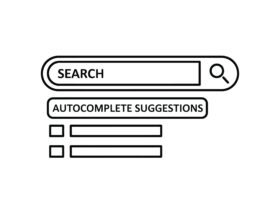Our brand reputation management services ensure that your company’s online image is accurate, secure and sustainable. Contact us to discuss your solution.
What is brand reputation?
Brand reputation refers to the collective opinions, beliefs and perceptions of a company’s image by customers, stakeholders and the general public. People often confuse it with similar terms like brand sentiment and brand perception because they’re both influenced by reputation. But, what drives brand reputation?
A company’s words and actions are the foundation of its reputation. Do they sell quality products and services? How do they treat their customers and employees? Are they environmentally friendly and socially responsible? The answers to these questions help to establish brand reputation, but they don’t completely define it.
Unfortunately, sometimes a brand’s real-world actions can fall out of sync with its online reputation. That’s especially true when negative content appears in a company’s search results. Whether it’s a few negative reviews, or a viral news cycle about a crisis, this alternate digital narrative can damage an otherwise great reputation.
Don’t underestimate the impact, either. Online brand reputation touches each level of your business. So, before we dive into some best practices for brand reputation management, I’ll explain why it matters.
Why brand reputation is important
Whether you’re the CEO, the CFO, or the CMO of a large corporation, you likely understand the value of a positive brand reputation. In fact, a recent study by Forrester Consulting revealed that 48% of executives believe reducing unfavorable search results would increase brand equity, and 41% said doing so would increase market share.
But, do you know why brand reputation is important? Let’s look at how reputation impacts several aspects of your business.
Customers
Businesses spend tens of millions of dollars every year building their brands in an effort to shape customer perception. They also funnel vast amounts of money into retention programs to build brand loyalty and improve customer satisfaction. However, while those investments may influence off-line sentiment, they won’t impact your digital reputation. And, since customers will ultimately encounter your brand’s online presence, its online reputation could overpower your preferred messaging.
Negative reviews in your Google search engine results can cause potential customers to rethink doing business with you. Even worse, a handful of bad reviews can quickly snowball out of control. That’s because a disappointed customer is more likely to leave negative feedback on review sites if they see that others had a similar experience.
Negative comments aren’t confined to review sites, either. Social networks are also a hub of real-time brand mentions, including complaints. These negative mentions impact brand trust, brand reputation, customer loyalty. In turn, that decreases the ROI of your expensive digital marketing campaigns.
Employees
Job review sites like Glassdoor make it easier than ever for employees to forge your brand’s reputation. Unfortunately, disgruntled employees can also leave false or exaggerated negative reviews about your company and its executives. If these negative reviews become page-one fodder on Google, your recruiting efforts will suffer.
Not only will job seekers see your poor star rating in Google, they might click through to your profile and read negative feedback. So, it’s vital to address concerns early on and respond to negative comments on your profile. In fact, a recent U.S. Site Survey found that 62 percent of prospective employees changed their opinion of a company if that company publicly responded to employee reviews.
Read more in our article, How to Remove Negative Glassdoor Reviews.
Investors
There are many reasons why companies need investors, including hiring, market expansion, expertise, and access to capital. However, in return for their money, investors expect reliable business growth. Moreover, most investors view reputational risk as a liability.
39 percent of executives think search results are tied to shareholder trust.
In fact, 39 percent of executives think search results are tied to shareholder trust. So, if your brand reputation is on shaky ground, your shareholders might decide to pull their investment.
Revenue
The majority of executives (54 percent) believe improving their brand’s online reputation would drive revenue growth. However, it’s difficult to calculate precisely how much corporate reputation impacts a company’s bottom line, but it is a substantial number.
54% of executives believe improving their online reputation would drive revenue growth.
According to the Harvard Business Review, a company with 10,000 employees could be spending as much as $7.6 million in additional wages to make up for a poor reputation.
In one case, we estimated our corporate reputation management efforts helped a customer recover more than $32 million in monthly revenue. Here’s a snapshot of that case study.
Brand reputation management case study ($32.7 million)
ReputationManagement.com was approached by a national furniture and mattress retailer that had multiple, negative listings on Google page one for brand name and review searches. This retailer had a combined monthly search volume of more than 300,000.
We built and executed a brand reputation management strategy that resulted in an increase of 32.7 million dollars in monthly revenue. You can read the full case study here.
Brand reputation management best practices
Corporate reputation impacts every level of your business. Whether you need to recover from a crisis or protect against future issues, it’s critical to invest in a holistic reputation management strategy.
Below, I’ll dive into 5 brand reputation management best practices. However, it’s worth noting that these tips aren’t a complete strategy. Instead, think of them as guidelines to improve your online presence.
1. Improve customer experience
Brand reputation management won’t be very effective if your business has serious customer experience flaws. The best way to prevent most problems is to create an amazing end-to-end customer experience. Here are a few things to consider:
- Sell amazing products and services. If you cut corners to improve margins at the expense of quality, revisit those decisions before customers complain.
- Enable seamless transactions. Nothing is more frustrating than waiting in line or struggling with the checkout process. Whether you operate hundreds of brick and mortar stores or a massive ecommerce website, customers want to cash out quickly when they find what they want. Friction leads to abandoned carts — both in-store and online.
- Provide stellar customer support. Customers may need help implementing your services or troubleshooting product issues, so don’t make them wait. It’s always better to overinvest in customer care than to risk getting bad reviews.
- Make returns and refunds easy. One way to guarantee a bad review is to waste your customers’ time and money. If they want a refund, don’t argue with them. Sure, your profits will take a hit. But, if you make the process seamless, they may purchase from you again. On the other hand, if you refuse, they’ll leave a bad review that could drive away future customers.
With so many brands to choose from, customers will remember the one that went the extra mile to provide an exceptional experience.
2. Monitor brand mentions
Major brands are mentioned thousands of times each day on the internet. These mentions can come from customers, reporters, influencers, or even competitors. And they can pop up on websites, blogs, social media platforms, review sites, or in mainstream news articles. Usually, they’re a great way to boost brand awareness and visibility as well as conversions.
However, media mentions can also be a catastrophe if they connect your brand to a crisis, a negative news article, or an unfavorable competitor comparison.
Therefore, constant monitoring is a critical component of effective brand reputation management. Think beyond social listening tools, too. You’ll need technology to track positive and negative sentiment behind mentions, policies to sculpt appropriate responses, and a team to manage external communications.
3. Handle customer reviews professionally
An overwhelming majority of buyers (84 percent) check online reviews before they make a purchase. Therefore, it’s essential to handle them properly. Responding to customer reviews looks easy at first glance, but it actually requires a lot of thought.
84% of buyers check online reviews before they make a purchase.
If a customer leaves a nasty complaint on Yelp or TrustPilot, you may be tempted to vehemently defend yourself. In fact, brand leaders often take negative reviews personally. But don’t lash out in anger or you’ll add credence to the criticism.
Instead, let the individual know that you hear them and you want to make things right. Show empathy and sincerity, and offer to take the discussion offline to find a resolution. It’s usually much easier to diffuse a situation on the phone than via email or comments in an online forum.
And don’t get so wrapped up in the complaints that you completely ignore the positive reviews. If a customer takes the time to leave a kind, brand-positive review, you should respond to thank them.
4. Engage on social media
Social media accounts are invaluable to brand reputation management. That’s not just because they allow you to engage with customers, but also because they rank incredibly well in Google. Although there are dozens of platforms to choose from, your company must have a social media presence on Facebook, Instagram, and Twitter.
But be warned: as useful as social media is for building a positive brand reputation, it’s also the source of countless brand crises each year. So, here are a few things to do before you hit “send” on any tweet, Facebook post, or Instagram pic.
- Make sure your content isn’t snarky, rude, or overly wordy/elitist.
- Check for correct grammar, spelling, and punctuation.
- Directly address followers and add personal touches while remaining professional.
- Don’t engage in politics or hot button issues, even on your personal/private profiles.
- Post consistently, across platforms, and share positive, philanthropic brand news.
5. Invest in online reputation management
Truly effective online reputation management isn’t about reacting to viral news cycles and poor reviews. A great ORM strategy builds a fortress around your brand image to protect it for the long-term.
Leverage content marketing
Content marketing is the process of creating and publishing valuable, high-quality content that is aimed at a specific audience in order to boost customer engagement and, ultimately, drive conversions. But, attention-grabbing content is also great for building a lasting, favorable brand image.
Earn positive reviews
Online review platforms rank very well in Google for branded searches. Since reviews can have a direct impact on company revenue, it’s worth your time to claim and optimize profiles on several prominent platforms.
Check out our article, How to get Google Reviews from Happy Customers, to learn more about how you can encourage positive reviews.
Leverage SEO
You can’t do brand reputation management if you don’t know what search engine optimization is. Without SEO, your preferred content won’t rank, and your reputation won’t improve. SEO reputation management optimizes preferred content to rank well in Google. As these assets rise up, they push down negative search results which eventually drop to page two and beyond.
Sadly, many reputation management companies still use high-risk, short-term tactics because they’re profitable to execute on a low budget. They buy fake reviews, stuff pages with keywords, or use outdated link building practices that violate Google’s guidelines.
The problem with this methodology is that it underestimates Google’s constantly evolving capabilities to spot manipulation. Eventually, these tactics will catch up with your brand and it will be difficult and expensive to overcome the damage.
A great SEO strategy intimately understands why Google ranks certain websites over others, and leverages those factors while remaining in compliance with search engines. Learn more about our process vs our competitors in our article about online reputation management cost.
Nurture strategic partnerships
I cannot stress enough how important it is to nurture brand advocates and strategic partnerships. These are charities, business relationships, media outlets and other assets you can leverage to amplify your good deeds online.
Perhaps your company anonymously donates to several charities, pitches in to help local communities, or owns a foundation. While you don’t want to cheapen your philanthropy, you shouldn’t let your good will go unnoticed, either. Corporate social responsibility and environmental stewardship are key pieces of the brand reputation management puzzle.
Brand reputation management takes time — start today
Unfortunately, you can’t just hit “delete” to remove search results from the internet. Brand reputation management takes time, resources, and a holistic strategy with expert deployment. If a firm promises to fix your reputation in a few weeks for pennies on the dollar, you should consider the risk that you’re trading for such a discount.
Your customers, investors, and employees all depend on Google to tell them which brands to trust. We work in close partnership with you to craft a favorable, accurate narrative that represents your company and legacy.
Contact us today to take control of your brand reputation.















